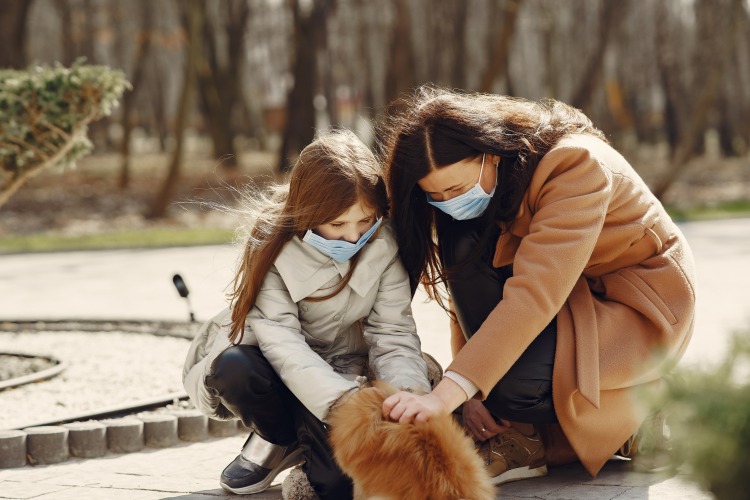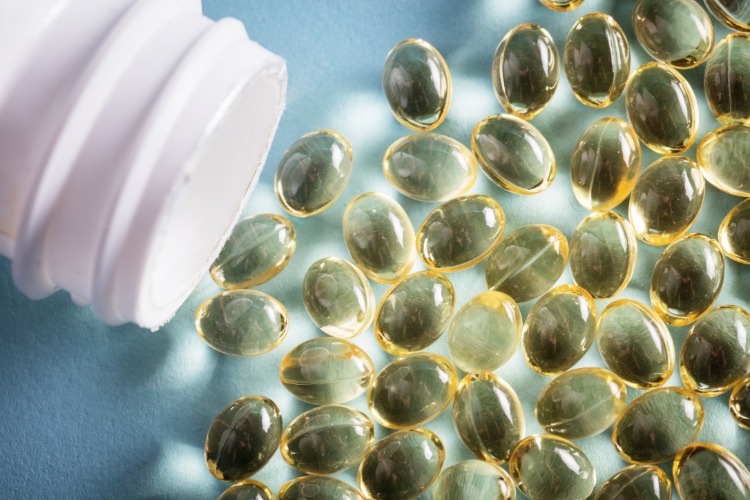Corona Vitamin D: Does the sun vitamin lower the risk of COVID-19?
How can the so-called Corona Vitamin D virus play a helping role? The fat-soluble sun vitamin has a positive effect on a number of processes in the organism that can be crucial in times of the pandemic. Despite the name, the combination of vitamins D1, D2 and D3 is not just a vitamin, but a steroid hormone. This is able to influence around 2000 genes in the human body. Here is the secret of its far-reaching effects on human health.
Corona Vitamin D and its benefits

There are many known benefits to taking vitamin D. It helps regulate the immune system and plays an important role in building and maintaining healthy cells. The vitamin is also a major tool for the absorption of calcium from the body and promotes bone growth. Medicine assumes that vitamin D is a preventive against autoimmune diseases, autism, cardiovascular diseases, diabetes, high blood pressure, neuromuscular diseases, osteoporosis, chronic pain and colds.

Vitamin D deficiency is associated with serious diseases such as breast and colon cancer, soft bones, osteomalacia, weight gain, depression and much more. The main external symptoms of such a deficiency are bone pain and lack of muscle strength. In some people, however, the symptoms can be latent and difficult to see. However, even without tangible signs, a small amount of the corona vitamin D virus in the body can contribute to the development or increase of the immune system. The best way to get your vitamin D is by regular sun exposure. However, modern lifestyles often prevent people from doing so, and as a result, many suffer from a lack of the sun vitamin.
Absorption from the body

If you consume animal proteins regularly, they often tend to block the production of vitamin D that has already been loaded by the sun. The body therefore remains in the blood with a low vitamin D level. According to many researchers, almost 70% of Europeans lack vitamin D. For this reason, many complications from diseases can arise. So to get enough vitamin D, it is advisable to expose your body to direct sunlight every day for a set period of time. Since ultraviolet produces vitamin D, it is good to know what times of the day it is most present. In winter these are the hours between 11:30 a.m. and 3:00 p.m., in summer between 9:00 a.m. and 11:00 a.m. and between 3:00 p.m. and 6:00 p.m.

It is also a good idea to take a shower before the first few hours after sunbathing in order to optimally absorb the vitamin D accumulated in the skin. You can also get the right amount of sun vitamin from supplements. However, the best form should be with the corona vitamin D3 virus. This is the so-called cholecalciferol, which comes from plant sources. So the nutrient is particularly important for the health of the immune system.

Many people wonder whether supplementing it with Corona Vitamin D can help reduce the risk of contracting the new coronavirus that causes COVID-19. It is important to note that there is currently no cure for COVID-19. No other preventive measures other than social distance and proper hygiene protect you from the development of this disease.
Immune system in Corona Vitamin D.

However, some research shows that healthy vitamin D levels and taking a vitamin D supplement can help keep your immune system healthy and protect you from respiratory diseases in general. But how does vitamin D affect the body's immune response? How can supplementing with this nutrient help protect against respiratory diseases? It is necessary for the proper functioning of your immune system. This is your body's first line of defense against infection and disease. This vitamin therefore plays a crucial role in promoting the immune response. It has both anti-inflammatory and regulatory properties and is crucial for the activation of the immune system.

Vitamin D is also known to improve the function of immune cells, including T cells and macrophages. These protect your body from pathogens. In fact, the vitamin is so important for immune function that low levels are associated with an increased susceptibility to infections and diseases. For example, low vitamin D levels are associated with an increased risk of respiratory diseases such as tuberculosis, asthma and chronic obstructive pulmonary diseases (COPD) as well as viral and bacterial respiratory infections. In addition, vitamin D deficiency causes decreased lung function. This can affect your body's ability to fight respiratory infections.
Protection from COVID-19

In the times of the pandemic, it is a good idea to have your vitamin D level tested by your doctor. So he can determine whether you are deficient in this important nutrient. Depending on your blood values, supplementing with 1000 to 4000 units of vitamin D per day is usually sufficient. However, people with low levels often need much higher doses to raise their levels to an optimal range. Although the recommendations for an optimal vitamin D level are different, most experts agree that the optimal vitamin D level is between 30 and 60 nanograms / ml (75 and 150 nmol / l).

Scientific studies therefore suggest that supplementing with vitamin D can protect against respiratory infections. This is especially true for people who lack the vitamin. However, note that there is currently no evidence that taking a supplement, including vitamin D, reduces the risk of COVID-19 disease due to infection with the SARS-CoV-2 coronavirus. If you are interested in a vitamin D supplement to improve your overall immune response, contact your doctor for information on the correct dosage.
The post Corona Vitamin D: Does the sun vitamin lower the risk of COVID-19? appeared first on Deavita.com | Living ideas, design, hairstyles, make-up, lifestyle, health and beauty tips.





















